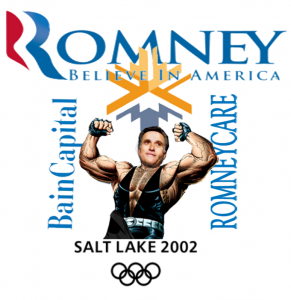 Matt Taibbi Explains Romney’s Wealth
Matt Taibbi Explains Romney’s Wealth
Last May, in a much-touted speech in Iowa, Romney used language that was literally inflammatory to describe America’s federal borrowing. “A prairie fire of debt is sweeping across Iowa and our nation,” he declared. “Every day we fail to act, that fire gets closer to the homes and children we love.” Our collective debt is no ordinary problem: According to Mitt, it’s going to burn our children alive.
And this is where we get to the hypocrisy at the heart of Mitt Romney. Everyone knows that he is fantastically rich, having scored great success, the legend goes, as a “turnaround specialist,” a shrewd financial operator who revived moribund companies as a high-priced consultant for a storied Wall Street private equity firm. But what most voters don’t know is the way Mitt Romney actually made his fortune: by borrowing vast sums of money that other people were forced to pay back. This is the plain, stark reality that has somehow eluded America’s top political journalists for two consecutive presidential campaigns: Mitt Romney is one of the greatest and most irresponsible debt creators of all time. In the past few decades, in fact, Romney has piled more debt onto more unsuspecting companies, written more gigantic checks that other people have to cover, than perhaps all but a handful of people on planet Earth….
[Mitt has] been right with them on the front lines of the financialization revolution, a decades-long campaign in which the old, simple, let’s-make-stuff-and-sell-it manufacturing economy was replaced with a new, highly complex, let’s-take-stuff-and-trash-it financial economy. Instead of cars and airplanes, we built swaps, CDOs and other toxic financial products. Instead of building new companies from the ground up, we took out massive bank loans and used them to acquire existing firms, liquidating every asset in sight and leaving the target companies holding the note. The new borrow-and-conquer economy was morally sanctified by an almost religious faith in the grossly euphemistic concept of “creative destruction,” and amounted to a total abdication of collective responsibility by America’s rich, whose new thing was making assloads of money in ever-shorter campaigns of economic conquest, sending the proceeds offshore, and shrugging as the great towns and factories their parents and grandparents built were shuttered and boarded up, crushed by a true prairie fire of debt.